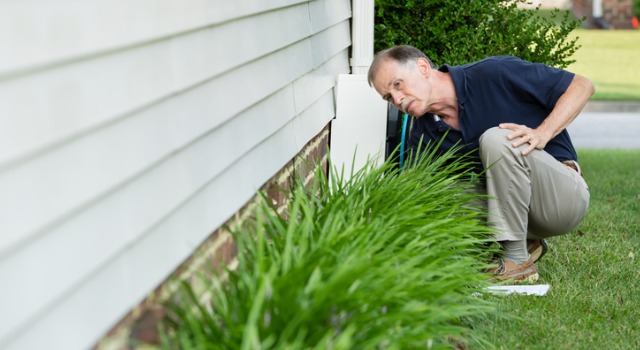By Anita Ginsburg
Your home's foundation must remain stable and secure because it literally supports the entire structure and all of its occupants. Luckily, most foundations, if built effectively, can last decades.
Related: What Makes A Home Foundation Sound?
Over time or due to major storm damage, though, a foundation may begin to show evidence of a damage. Here are four signs that your foundation may be in trouble:
Sinking
If you notice that your floor seems to be uneven, or if it has sunk lower than before, a serious problem may be developing in the foundation. As ground settles due to factors like soil erosion, weather elements and moisture drainage, a home's foundation may be impacted to the point of sinking deeper in places. Over time, this can cause major damage to the foundation, which will then cause a domino effect that could impact the home's entire structure. Contact a foundation repair expert for a professional assessment.
Sagging
Sagging may be due to ground conditions or a breakdown in the foundation's building material. Severe sagging may lead to a partial foundation collapse if left unaddressed. When a home's walls or floors can be seen starting to sag, contact a contractor who works with foundation structures and materials for an evaluation. If caught early, the problem could possibly be repaired at a reasonable cost without extensive excavation or rebuilding.
Leaning
If one or more basement walls begin to lean, whether over time or suddenly, do NOT ignore the issue. Contact a foundation expert to diagnose the problem and recommend a suitable repair. Although the leaning may be minor and may stop after initial movement, you don't want to take a chance by ignoring it. Letting the problem go could lead to a more abrupt shift in the foundational structure that will cause major damage and cost significantly more to repair.
Leaking
Your home's foundation may develop leaks due to external moisture from rain and melting ice or snow. Over time, outside moisture that slopes toward the foundation can exert gentle, but continual, pressure that'll begin to erode the foundation's structure. If you notice tiny moisture streams between the foundation blocks or small pools of moisture on your basement's floor, get in touch with an expert who can identify the source of the problem.
Your home's foundation needs to remain stable in order to support your entire home. Take action when you spot even minor problems to find out what's going on and to address any problems that may be developing.
 Anita Ginsburg is a freelance writer from Denver, Colo. She studied at Colorado State University and now enjoys writing about health, business, and family. She loves traveling with her family whenever she isn't writing. If you've noticed any of these signs of structural damage in your home, she recommends contacting a foundation repair professional as soon as possible. You can find her on Twitter @anitaginsburg.
Anita Ginsburg is a freelance writer from Denver, Colo. She studied at Colorado State University and now enjoys writing about health, business, and family. She loves traveling with her family whenever she isn't writing. If you've noticed any of these signs of structural damage in your home, she recommends contacting a foundation repair professional as soon as possible. You can find her on Twitter @anitaginsburg.









Thank you for the good info I know in Texas slabs often come up in inspection because of wet and dry seasons can often cause movements in the soils.
A good indication of a sinking is broken tiles or grout crack lines. As you can imagine the stress causes those cracks as the home sinks.